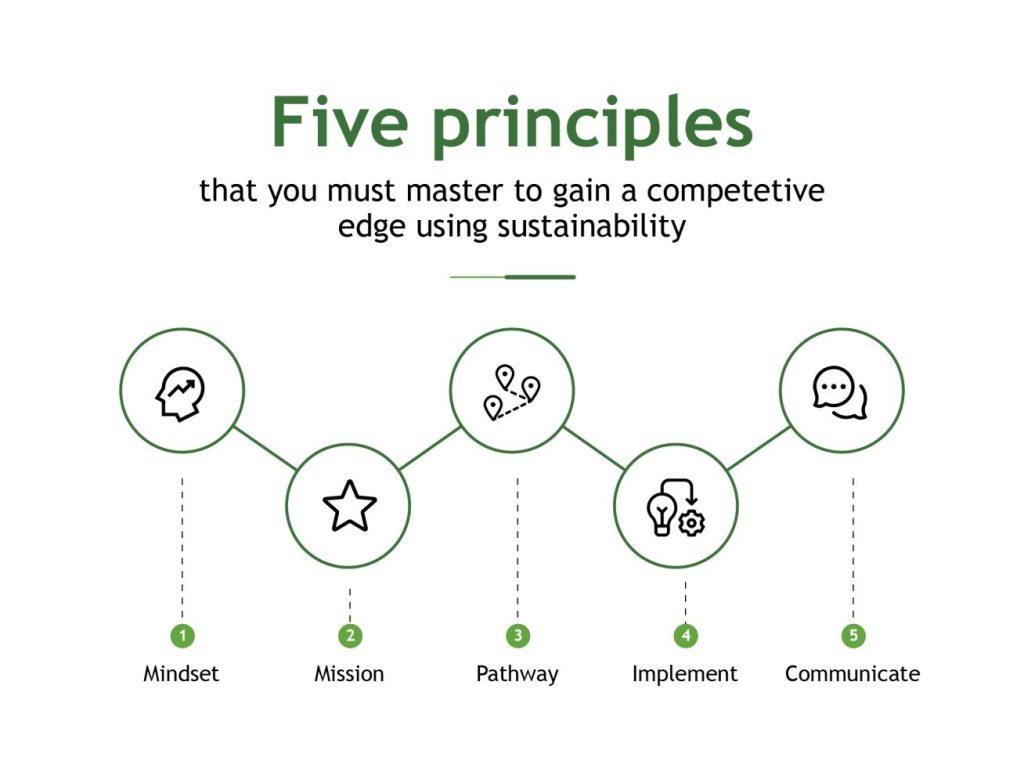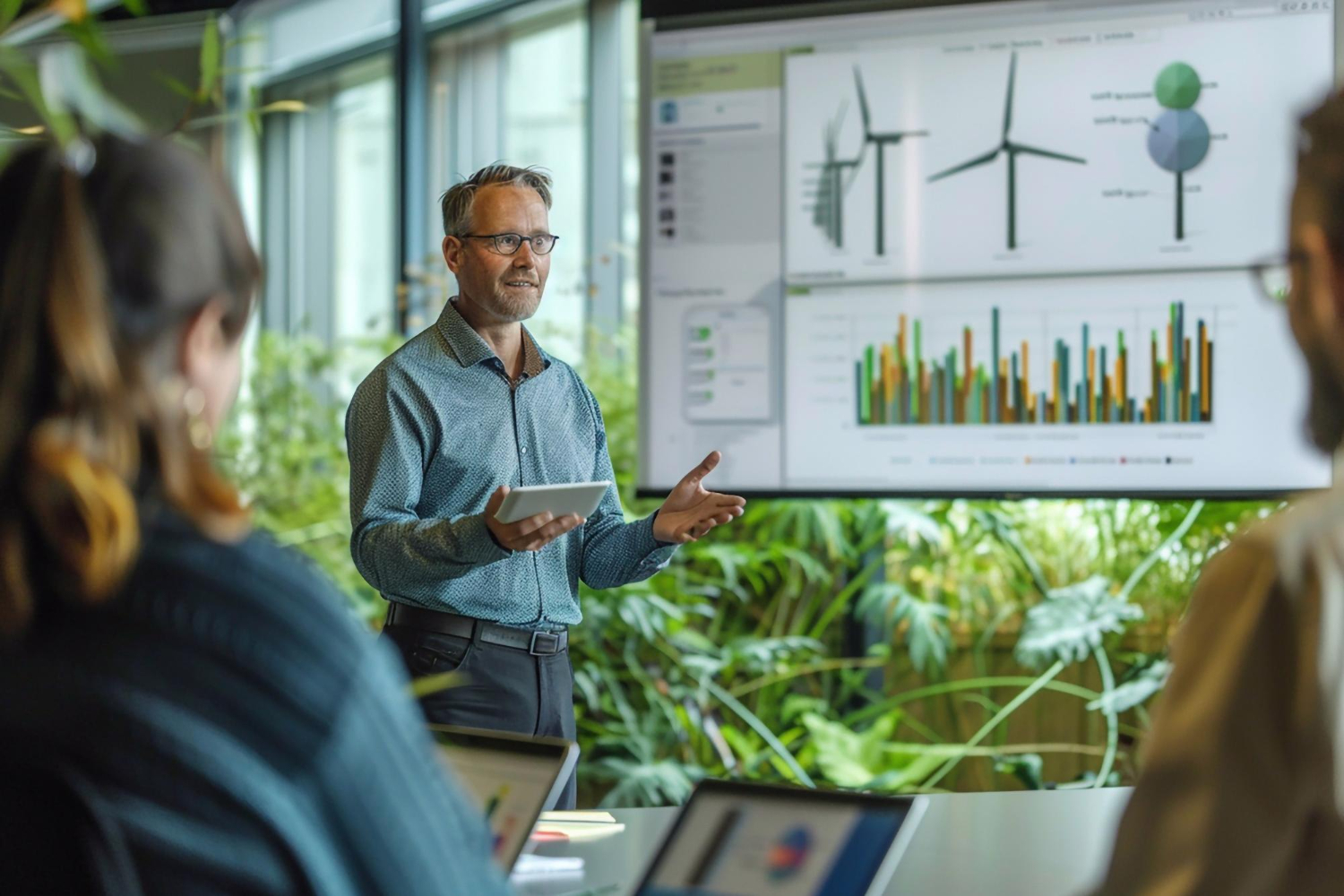More and more leaders are adopting the word sustainability, and they want to act. That is great, but how we define sustainability leads to inadequate levels of action and make it harder to succeed with the initiatives we decide to take. It is time to redefine Sustainability!
Words matter! A lot. We attribute meaning to things depending on how they are described to us. We define the appropriate level of action based on the words that are used to describe the problem in question. The decision on whether to engage or not depends on the words. And that is even without thinking about it.
The UN writes on their website about sustainability:
In 1987, the United Nations Brundtland Commission defined sustainability as “meeting the needs of the present without compromising the ability of future generations to meet their own needs.” Today, there are almost 140 developing countries in the world seeking ways of meeting their development needs, but with the increasing threat of climate change, concrete efforts must be made to ensure development today does not negatively affect future generations. [my highlighting].
But hello…. We are long passed the point where we started to compromise the ability of future generations to meet their own needs. The definition from back then clearly states that we can do as we please now, as long as we don’t compromise future generations’ abilities to meet their needs. It implies that there is still some distance to go before we pass the threshold and get into the situation where today’s activities mean that future generations will have fewer opportunities to meet their needs.
We know we must slow down and potentially change the way we live and operate in society. But we talk as though we have some time before we must make the tough decisions. The fact is that in so many areas, we don’t have time. If you look out the window or go to any news site, any newspaper and you will find a story about a new drought, a new storm, massive rainfall, flooding, plastic or acidification in the ocean, biodiversity loss… The list is long, and it is unfolding all over the globe. And yet, we still discuss an approach to our sustainability efforts and the targets we set as if we still have time.
That is why I proposed that we rewrite our definition of sustainability. I suggest something along the lines of:
Meeting the needs of the present,
while regenerating the ability of future generations to meet their own needs.
It looks like a minor adjustment, right? Shifting from “compromising” to “regenerating”. But it makes all the difference. It will clearly imply that we must meet the needs of the present while at the same time re-establishing a healthier balance in the ecosystem. Meaning we have cleaned up some of the mess that we have created and thereby give our children and their children chances that are somewhat similar to ours.
But what does regeneration actually entail?
While you can find different schools of thought, I would argue that the common red thread is, that something is restored to a better state (also aligned with a definition from the Oxford English Dictionary). Some definitions will require a certain scope and scale before you could say that something is regenerative. All good, and all needed.
But I also hear a lot of people that feel regeneration is way out of their league, so they don’t even dare to embark on such a journey. A slightly less demanding definition would be more in line with wordings like positive impact, and it might make it seem slightly more achievable.
This is important, as we need decision-makers, experts, and others that define the playing field to change the lenses through which they view the world.
As long as sustainability is limited to the domain of just slowing down the pace, things just get worse all the time. We have to start gradually moving towards a situation where future generations will have the same fundamental opportunity to meet their needs, as the current generation.
Why regeneration is for you!
The need for a regenerative/positive impact focus is obvious from an ecosystem-related argument. The same goes for the ethical and emotional arguments, in that it is not okay to take away the opportunities for our children and our grandchildren, and those around them.
But wait there is more! Even if we set aside that sort of more moral or ethical argument, there is a more practical and tangible reason for it – it will increase your odds of success significantly. Aim for a positive impact and you stack the odds in your favor.
By now you probably think “why is it significantly better to focus on creating a positive impact instead of minimizing a negative one?” It only seems to make the task bigger, so why should it increase my odds of success? Good question and the answers are to be found partly in our brain and partly in our culture.
It’s not about minimizing – about creating.
When you speak about creating a positive impact you align with the business mindset. All over your organization, you have people that strive to create better products, create a new or a better market position, or create more satisfied customers. Your pool of like-minded people just increased manyfold.
Now it is significantly easier to get people in the various areas of the organization, especially those that are not already engaged in sustainability, to join in. It will be easier for them to see how they can contribute to creating something because they’re all used to creating. So, their basic skills and mindset can be activated.
Shifting to creating a positive impact is also brain-friendly. It is deeply ingrained in mankind to create, to develop, to make, to progress. This is what our brains always have sought to do, and it starts a positive set of emotions of feelings. This is the better starting point.
For most people, minimizing kickstarts the same emotions as when you talk about spending cuts. It is a negative association that leads to negative emotions.
The final reason why a shift in focus and wording towards creating positive impact will make you more successful is that the world really needs the positive impacts, and more and more people see that now. Positioning your company as one that helps solve the world’s problems instead of just slowing down the problem, will give you a lot more credit. Ironically you can say that there is a lot more credit to be made from being part of even just a smaller positive impact than there is from delivering a significant minimization. Removing 5% more carbon from the atmosphere than you emit altogether compared to reducing your emissions by 90%.
The difference might not be that big in terms of what you actually need to do. You still have to go through the same steps to minimize as that is the inevitable path past the zero mark and into positive territory. But the story is better. The narrative is stronger. It is easier to attract the right people and the impact, in the end, will be better. All because of a change of words and the associated change in perspective.
Turn sustainability into a competitive advantage
This way of approaching sustainability in your business is part of an effective mindset – one that will enable you to create a competitive edge. That is why mindset is the first of five principles that I through more than a decade of experience have discovered that you need to cover, and cover really well, to be able to give you that competitive advantage. The others are
2) mission: You need to have a clear mission so you clearly can state why the world is a better place because you are here.
3) Pathway: You need to have a clear pathway telling you how you are going to get there? What are the initiatives you will take and what sequence will you follow in pursuit of a credible overall trajectory towards the targets you set up?
4) Implementation: You need to walk the talk and when you do so, this is where the results start to come. The better you are at picking high-value problems to work on the bigger the value of your effort. Choosing the right steps will come naturally as you go through the initial principles of Mindset and Mission.
5) Communicate: You can do all the right things in the world. But if you are not able to, or choose not to tell people about it, you’ll never be able to get that perpetual tailwind that the credit from the marketplace and world around you will give.
These are the five principles.

If you think this is interesting, and you would like to learn more about the mindset and the other principles, then go to https://cetest.scoreapp.com/ and score yourself for free against all five principles and get tailored insight into the best next steps for you.
Or you can book a seat in one of my free workshops where I will go through all five. Book your seat here: https://calendly.com/jsteinhausen/an-introduction-to-creating-a-competitive-edge-using-sustainability
What ever you do, make it count!
Jasper




